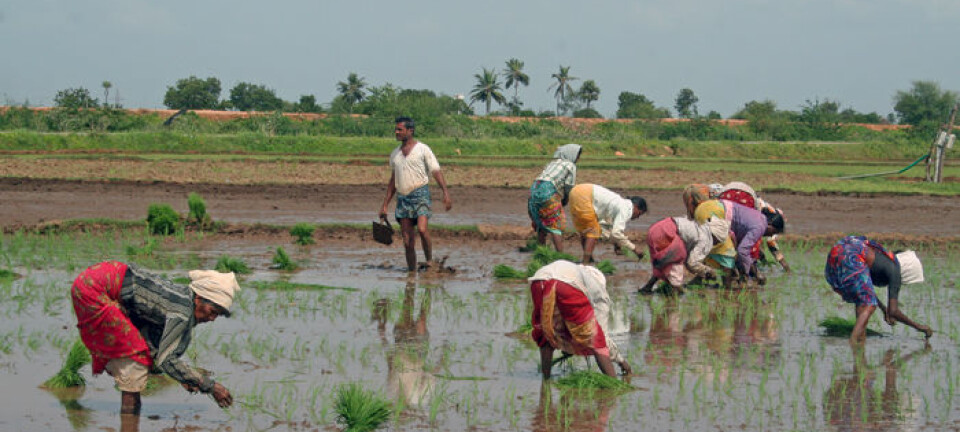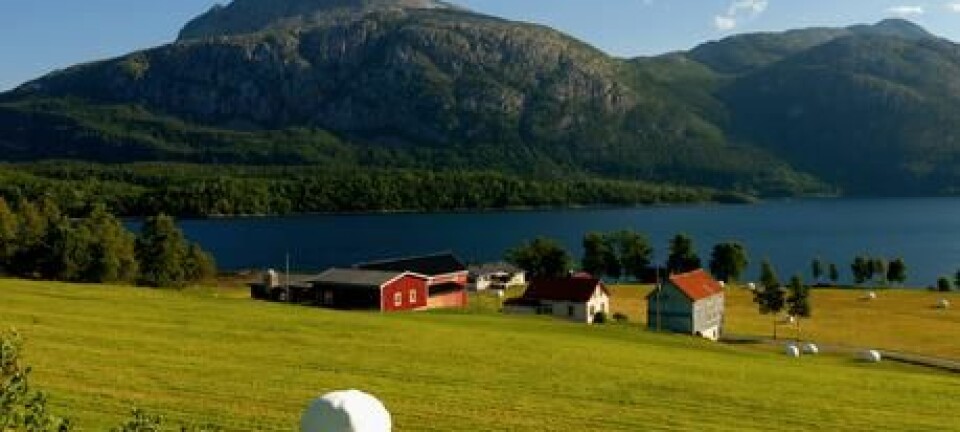This article was produced and financed by Norwegian Institute for Agricultural and Environmental Research
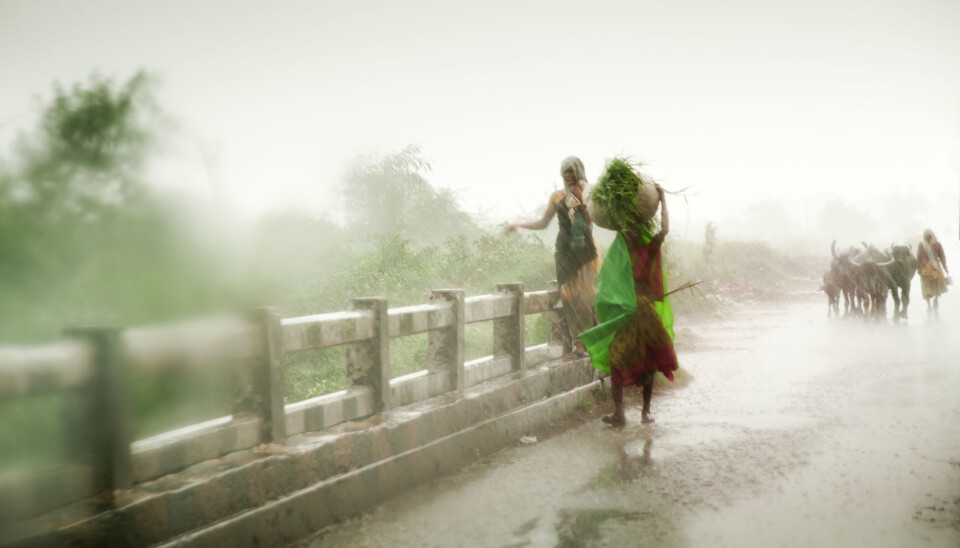
New book on climate change adaptation in Indian agriculture
Climate change and agriculture in India is the focus of a new peer-reviewed book, based on seven years of field work.
Denne artikkelen er over ti år gammel og kan inneholde utdatert informasjon.
Climate Change impacts in India: Studies from selected river basins is a new book by Bioforsk (the Norwegian Institute for Agricultural and Environmental Research) and the International Water Management Institute.
Seven years in the field
Dr. Udaya Sekhar Nagothu of Bioforsk, one of the main editors of the book, says the multidisciplinary framework on which the book is based, is essential to address the complexity of climate change impacts.
“We have spent the last seven years in the field experimenting, piloting, scaling up and validating the impact of different adaptation strategies for increasing crop production and efficient use of irrigation water,” says Dr. K. Palinisami, the lead editor of the book.
“A number of strategies for each basin have been identified, which could be implemented either in isolation or in combination, along with their costs and benefits. We hope the evidence will convince the policymakers that the investment needed to scale up the adaptation strategies, including farmer capacity building programs, is justified."
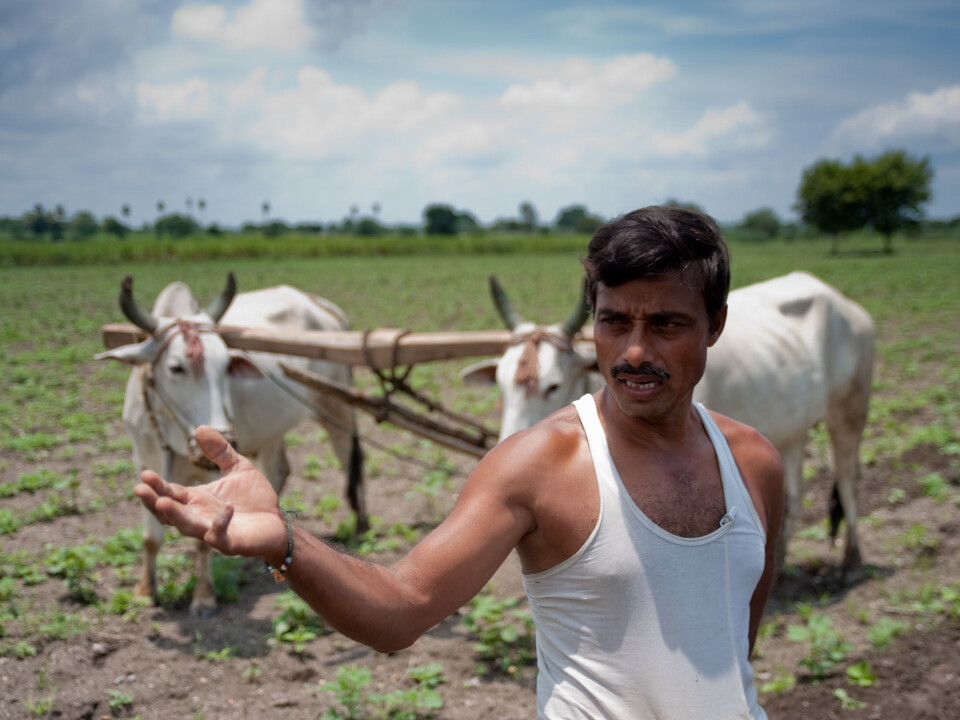
“As for the farmers, the cost of not adopting an adaptation strategy would itself be an eye opener,” he adds.
Unique in India
The book is one of the first attempts ever in India to gather field data over several seasons, and to provide a quantitative assessment of how agricultural systems would be affected.
In addition, it suggests a set of counter adaptation strategies.
To make the picture more accurate, scientists included socioeconomic variables along with climate variables such as rainfall and temperature and scaled it down to a river basin level.
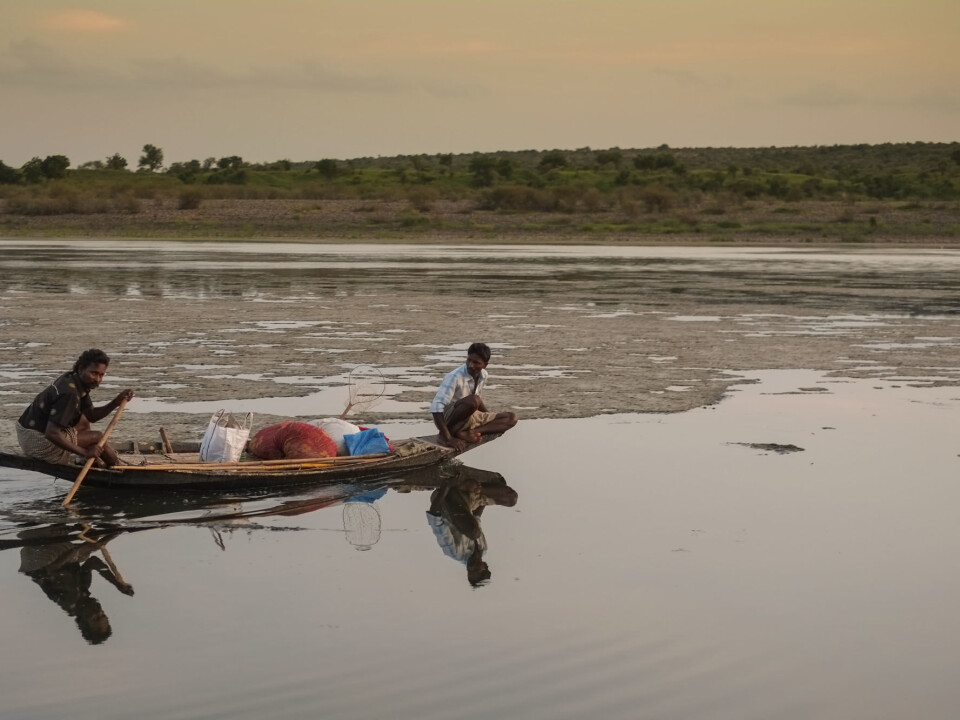
Three major river basins in India - the Godavari, Krishna and the Cauvery - were analysed at different times of the year to better understand the possible yield reduction of different crops due to changes in temperature and rainfall pattern.
The scientists hope the results will help pinpoint areas where strategies for adapting to climate change can be integrated with government programs.
Suggests strategies
The first part of the book makes a quantitative assessment of how climate change affects agricultural and food production systems.
Secondly, it predicts how these systems may respond to climate change and finally, it suggests adaption methods and strategies to improve the income of farmers, increase production, save water and conserve the environment.
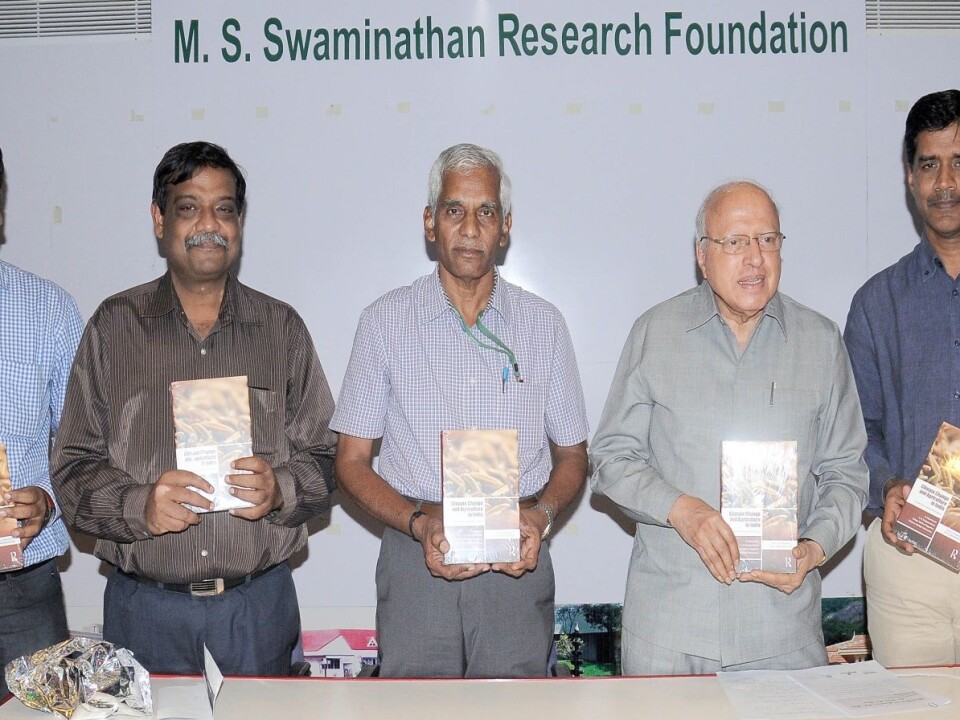
According to Dr. Nagothu, the book will be very useful to policymakers, as well as researchers and teachers of agricultural economics, environmental studies and economic and development studies. The book will also be of interest to research organisations dealing with climate modelling and resource management.
The launch
The book was formally launched last month at the M.S.Swaminathan Research Foundation in Chennai, India, by eminent scientist and father of the Green Revolution in India, Professor M. S. Swaminathan.
Nearly 75 representatives from the Indian Government, as well as scientific institutes, non-governmental organizations, press and media were present at the launch.
Speaking at the book release, Professor Swaminathan highlighted the book’s relevance to stakeholders dealing with climate change. He also pointed out that the release of the book is timely as the state governments are currently in the process of developing an adaptation strategy.
He said the river basin level approach followed in the book is in line with the current thinking of the national government in India and emphasised that this type of approach is necessary for India and the region in order to address the climate change and climate variability impacts on agriculture and food production systems.
Great relevance
“This book will become a key reference in charting and assessing progress in building resilience and adaption in smallholder farming systems in India” commented Andrew Noble, program director, CGIAR Research program on water, land and ecosystems at the International Water Management Institute in Colombo.
Professor Ariel Dinar, director of the Water Science and Policy Department of Environmental Sciences, at the University of California in Riverside added: “The right mix between theory, empirics and case study approaches makes this book valuable to scholars.”
Dennis Wichelns, director of the Institute of Water Policy at the National University of Singapore believes the book will become “a key reference in charting and assessing progress in building resilience and adaption in smallholder farming systems in India.”







